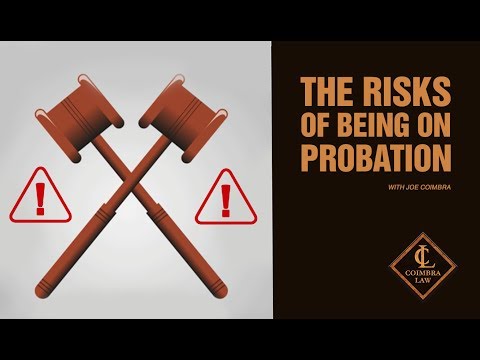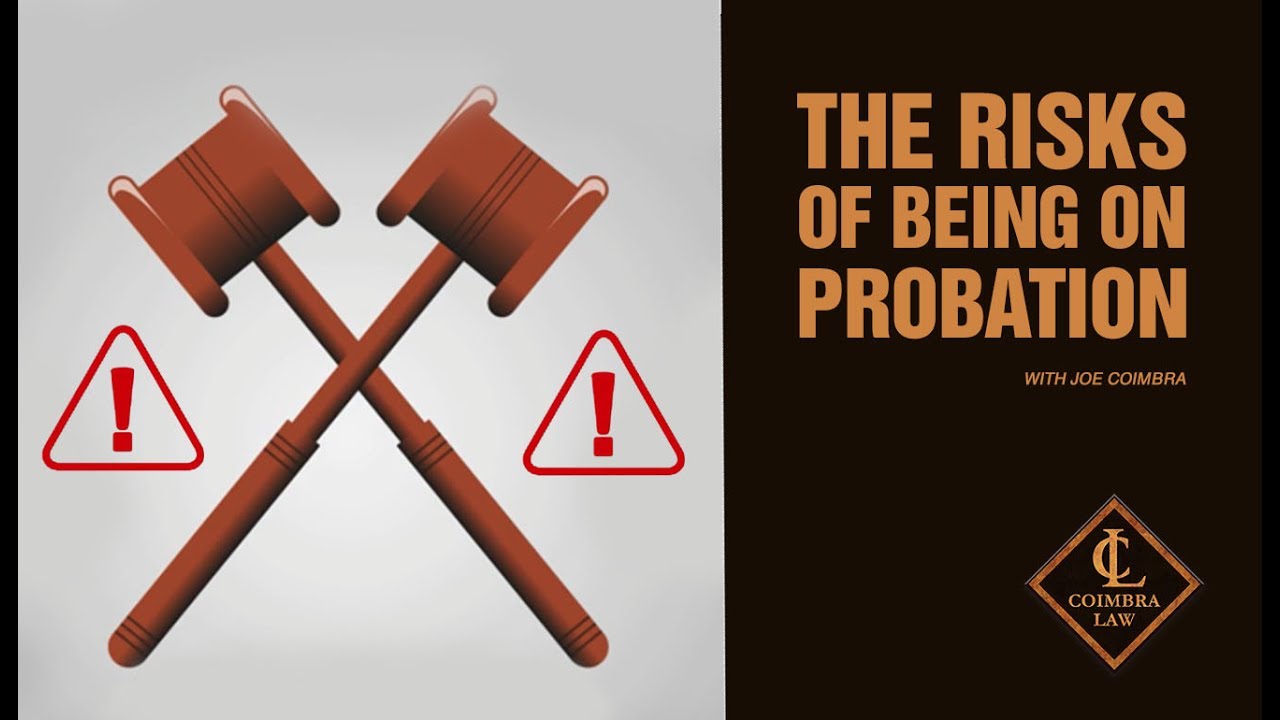Discover the Consequences: If you find yourself entangled in a misdemeanor while on probation, brace yourself for a complex web of legal repercussions that can significantly impact your future. This gripping situation could potentially jeopardize the progress you’ve made on your path to rehabilitation. With the stakes raised, your probation officer will closely scrutinize each aspect of your case, intensifying supervision and imposing stricter conditions. The tension builds as you face the unsettling possibility of probation revocation, leading to a potential jail sentence. The weight of this predicament lies in the precarious balance between the leniency you were granted and the severity of the new charge. Navigating the intricate legal landscape becomes paramount, as your fate hangs in the balance. Seeking expert legal counsel becomes imperative in order to mount a strong defense, mitigating the potential consequences that loom over your life. Trustworthy legal guidance can help you understand the intricacies of your specific situation and provide you with the tools to effectively navigate the legal system. As you face the uncertain future that lies ahead, it’s crucial to remain resolute, determined to overcome this obstacle and emerge stronger on the other side.

Consequences of Obtaining a Misdemeanor while on Probation
| Violation Consequence | Explanation |
|---|---|
| Probation Revocation | If you commit a misdemeanor offense while on probation, it is likely to result in the revocation of your probation. This means that any favorable terms or conditions previously granted to you may be nullified, and you may be required to serve the remaining sentence in jail or prison. |
| Increased Supervision | Upon committing a misdemeanor while on probation, your supervising officer is likely to increase the level of supervision. This may include more frequent check-ins, random drug tests, or mandatory counseling sessions to ensure compliance and prevent further violations. |
| Additional Penalties | In addition to probation revocation, a misdemeanor offense while on probation can lead to additional penalties. These may include fines, community service, mandated rehabilitation programs, or an extension of your probationary period. |
| Criminal Record Implications | Committing a misdemeanor while on probation can have lasting effects on your criminal record. A new conviction may result in further tarnishing your record, potentially impacting future employment prospects, housing opportunities, and eligibility for certain licenses or certifications. |
| Escalation to Felony | In some cases, a misdemeanor offense committed while on probation can be grounds for the charge to be escalated to a felony. The seriousness of the violation, prior criminal history, and other factors can influence the decision to elevate the charges, leading to more severe consequences and penalties. |
The Hidden Perils of Probation: Exploring its Surprising Dangers
What Happens if You Get a Misdemeanor While on Probation?
If you find yourself on probation, it means you have been given an opportunity to avoid jail time by abiding by certain conditions set by the court. These conditions could include regular check-ins with a probation officer, staying away from certain individuals or locations, attending counseling or therapy sessions, and refraining from any criminal activity. However, if you commit a misdemeanor offense while on probation, the consequences can be severe. Let’s take a closer look at what happens if you find yourself in this situation.
Violation of Probation
When you commit a misdemeanor offense while on probation, you are considered to have violated the terms of your probation. This violation can occur in various ways, such as being arrested for a new crime or failing to comply with any of the conditions set by the court. Once the probation officer becomes aware of the violation, they will start the process of reporting it to the court.
Upon receiving the report, the court will typically schedule a probation violation hearing. During this hearing, the judge will evaluate the evidence presented by the probation officer and your defense attorney, if you have one. It is important to note that the burden of proof in a probation violation hearing is much lower than in a criminal trial. Rather than proving your guilt beyond a reasonable doubt, the prosecution only needs to establish that it is more likely than not that you violated the terms of your probation.
Possible Consequences
If the court determines that you have indeed violated your probation, you may face a range of consequences, depending on the severity of the violation and your prior history. Some possible consequences include:
1. Increased probation terms: The court may choose to extend your probation period, requiring you to complete additional months or even years of supervision. This can mean more frequent check-ins, stricter conditions, and a longer overall period under probation.
2. Additional conditions: In addition to extending your probation, the court may impose additional conditions to address the specific violation. For example, if you were arrested for drug possession, the court may require you to attend drug rehabilitation programs or undergo regular drug testing.
3. Jail time: Depending on the nature of the misdemeanor offense, the court may decide that probation is no longer an appropriate sentence and impose jail time instead. The length of the sentence can vary based on the offense committed and your prior criminal record.
4. Fines and restitution: Alongside or in lieu of jail time, the court may require you to pay fines and/or restitution to the victim or society as a form of punishment for the violation.
5. Revocation of probation: In more serious cases, the court may decide to revoke your probation entirely and impose the original jail or prison sentence that was suspended when probation was granted. This means you could be sent to serve the remainder of your sentence behind bars.
Legal Defense Options
If you find yourself facing a misdemeanor charge while on probation, it is crucial to seek legal representation as soon as possible. A skilled defense attorney can help you navigate the complex legal process and present the strongest possible defense on your behalf. Some common defense strategies in probation violation cases include:
1. Lack of evidence: Your attorney may argue that the prosecution has not presented enough evidence to establish that you committed the alleged offense. They will review the evidence against you and look for any weaknesses or inconsistencies that could be used in your defense.
2. Compliance with probation terms: Your attorney may present evidence to show that you have been in compliance with all the conditions of your probation, despite the alleged violation. This can include providing documentation of completed counseling sessions, drug tests, or community service hours.
3. Mitigating circumstances: Your attorney may argue that there were extenuating circumstances that led to the violation, such as a genuine misunderstanding or an unforeseen event. They will present these circumstances to the court in an effort to mitigate the consequences you may face.
Avoiding Future Probation Violations
The best way to avoid facing the consequences of a misdemeanor offense while on probation is to strictly adhere to the conditions set by the court. This means staying away from any criminal activity and regularly checking in with your probation officer. Additionally, it is essential to seek guidance and support from professionals who can help you address any underlying issues that may contribute to criminal behavior.
Remember, probation is a second chance to turn your life around. By taking it seriously and making positive changes, you can successfully complete your probation and move forward towards a better future.

